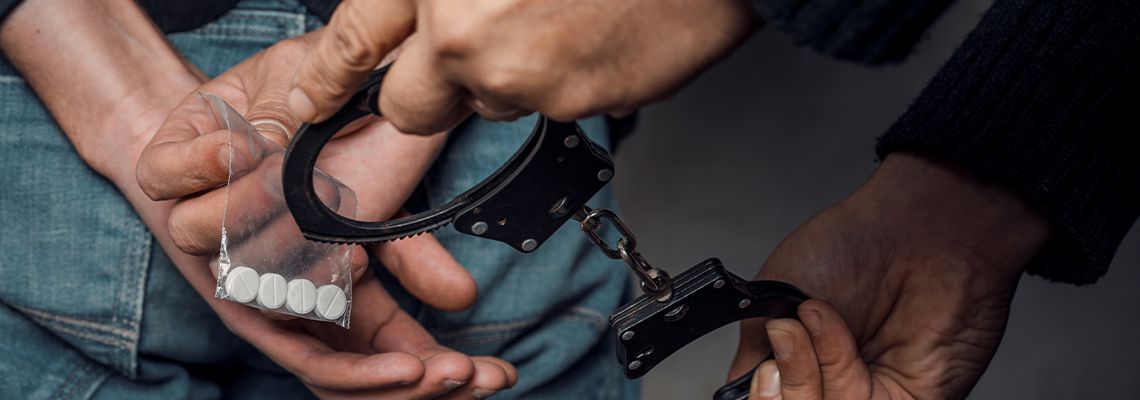When someone is facing drug possession charges in Iowa, the quantity of the drugs involved can significantly influence the severity of the charges and the potential penalties. Drug laws in Iowa are strict, and penalties increase with the amount of the controlled substance in question.

When Family Gatherings Escalate to Violence
Family gatherings are meant to be times of joy and celebration, bringing together loved ones to share in each other's company. Unfortunately, these gatherings can sometimes escalate into arguments and, in extreme cases, violence. It's important to recognize not only the emotional toll these incidents can take but also the potential legal consequences that can follow.
Domestic violence encompasses a range of behaviors beyond physical abuse, including emotional, psychological, and financial abuse, among close relations or family members. It's crucial to recognize the signs early and understand that these situations can escalate from seemingly minor disputes to serious problems.
Common Scenarios Leading to Escalations at Family Gatherings
Family gatherings, though generally joyous, can unfortunately escalate into violence due to various triggers. Recognizing these common scenarios can help in preventing disputes from spiraling out of control. Key scenarios include:
Alcohol Consumption: Excessive drinking can impair judgment and lower inhibitions, leading to aggressive behaviors and conflicts.
Unresolved Family Disputes: Bringing up old grievances or unresolved issues during a family gathering can quickly escalate emotions.
Stress and High Expectations: The pressure to create a perfect family gathering can result in stress, leading to short tempers and arguments.
Financial Disputes: Discussions around money, inheritance, or financial contributions to the gathering can become contentious.
Jealousy or Rivalry: Competition or comparison between family members, whether over achievements, relationships, or possessions, can fuel resentment and conflict.
Understanding these scenarios can be the first step in creating strategies to prevent violence and ensure family gatherings remain occasions of happiness and unity.
Domestic Violence Laws in Iowa
Iowa law takes domestic violence seriously, with a range of penalties designed to protect victims and deter offenders. Some possible penalties include:
Mandatory Arrest: Law enforcement is required to make an arrest if there is reasonable evidence of domestic violence.
No-Contact Orders: Courts can issue orders prohibiting the accused from making any contact with the victim.
Fines: Offenders can face significant fines, depending on the severity of the offense.
Jail Time: Convictions can result in jail time, with sentences varying based on the nature of the offense and any previous convictions.
Probation: Offenders may be placed on probation, requiring regular check-ins with a probation officer and adherence to specific conditions.
Batterer’s Education Program: Some offenders may be required to complete a program focusing on preventing domestic violence.
Your Next Steps When Charged With Domestic Violence
When a family member is charged with domestic violence, navigating the next steps is crucial for all parties involved. Here are some key considerations and actions to take:
Understanding the Charges: It is important to fully understand the nature and extent of the charges against the family member. This can include the specific type of domestic violence alleged and the potential legal consequences if convicted.
Securing Legal Counsel: One of the first steps should be to secure a competent attorney who specializes in domestic violence cases. An experienced lawyer can offer guidance, defend the accused's rights, and work towards the best possible outcome given the circumstances.
Support Systems: For both the accused and the accuser, finding a support system is crucial. This can include family, friends, or professional services such as therapists or support groups focused on domestic violence.
Compliance with Court Orders: If the court has issued any temporary protection orders or other restrictions, it is critical that the accused complies fully with these orders. Violations can lead to further legal complications and penalties.
Preparation for Legal Proceedings: Both sides will need to prepare for the legal process, which may include gathering evidence, witness statements, and other relevant documents. This is another area where legal representation is invaluable.
Consideration of Rehabilitation Programs: In some cases, participation in rehabilitation programs focused on anger management or domestic violence prevention can be a positive step for the accused. This may also impact the legal proceedings and outcomes in a favorable way.
Open Communication: While it may be difficult, maintaining open lines of communication within the family can help in managing the situation more effectively. This includes discussing the impact of the charges, potential legal outcomes, and how the family can support each other through the process.
By taking these steps, families can better manage the emotional challenges that arise when a family member is charged with domestic violence.
Take Legal Action Today
Family gatherings should be a source of happiness, not stress or fear of potential escalation into violence. For those facing the consequences of such incidents, remember, there is help and hope. With the right legal and support resources, individuals can move forward from these incidents towards a brighter, peaceful future.
Balduchi Law Office, PC offers experienced legal representation for those dealing with the aftermath of domestic violence incidents. Schedule a free consultation to get the strategic legal help you need. Located in Des Moines, Iowa, the lawyers at Balduchi Law Office, PC also serve clients throughout Polk County and surrounding counties.
Kent Balduchi and Austin Luse provide over 30 years of combined experience. Kent Balduchi was a paramedic for 23 years, and Austin Luse is a member of the Iowa Association for Justice organization, so you can trust they will fight for your needs with compassionate attention.
RECENT POSTS
Constructive possession is often used in situations involving shared spaces, such as cars, homes, or apartments. It can be a highly contested issue in court, as it relies on circumstantial evidence and interpretation of a person’s proximity, knowledge, and control over the location where the drugs were discovered.




